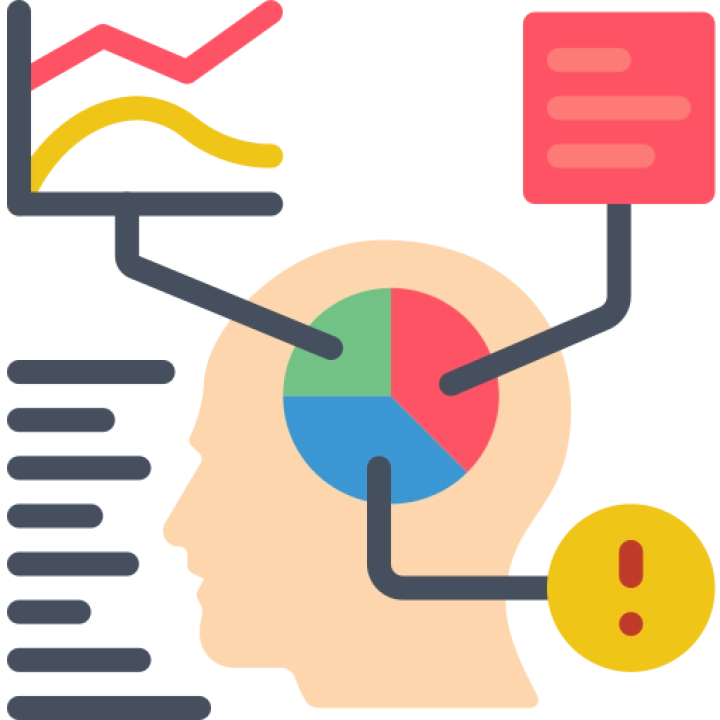College: Institute of Graduate Programs
This program focuses on the collection, analysis, and interpretation of business data to support informed decision-making. Students explore key areas such as data management, business analytics, data visualization, predictive analytics, and data-driven strategies. The program emphasizes technical skills, analytical thinking, and the use of advanced tools and techniques. Graduates are prepared for careers in business intelligence, data analytics, consulting, and related fields.
Learning Objectives:
- Understand the fundamentals of business intelligence and analytics.
- Develop skills in data management, business analytics, and data visualization.
- Learn techniques for predictive analytics and data-driven decision-making.
- Explore principles of data governance, ethics, and security.
- Understand the role of advanced tools and techniques in business intelligence.
- Analyze challenges and opportunities in data analytics and business intelligence.
- Develop teamwork and problem-solving skills for analytical projects and initiatives.
Main Curriculum:
- Introduction to Business Intelligence and Analytics
- Overview of business intelligence, key concepts, and historical context.
- Fundamentals of data analytics and decision-making.
- Data Management
- Principles of data management, including data collection, storage, and integration.
- Techniques for managing and organizing large data sets.
- Business Analytics
- Basics of business analytics, including descriptive, diagnostic, predictive, and prescriptive analytics.
- Techniques for analyzing business data and extracting insights.
- Data Visualization
- Principles of data visualization, including charting and dashboard creation.
- Techniques for creating effective and informative data visualizations.
- Predictive Analytics
- Fundamentals of predictive analytics, including statistical modeling, machine learning, and forecasting.
- Techniques for building and validating predictive models.
- Data Governance and Ethics
- Principles of data governance, including data quality, metadata management, and compliance.
- Ethical considerations in data analytics and business intelligence.
- Advanced Tools and Techniques
- Overview of advanced tools and techniques, including SQL, Python, R, Tableau, and Power BI.
- Techniques for using these tools to conduct complex data analytics.
- Research Methods in Business Intelligence
- Principles of research methods, including experimental design, data collection, and analysis.
- Techniques for conducting and evaluating research in business intelligence.
- Practical Training in Business Intelligence and Analytics
- Hands-on experiences in data analytics, including observations, internships, and practical projects.
- Techniques for applying acquired skills in practical work environments.
- Capstone Project in Business Intelligence and Analytics
- A comprehensive project to apply skills acquired in data management, business analytics, or predictive modeling.
- Techniques for delivering a polished and in-depth business intelligence solution.
Assessment Methods:
Data management projects, business analytics reports, data visualization presentations, predictive analytics models, data governance plans, ethics papers, tool and technology applications, research methodology papers, practical training reports, capstone projects, group projects, internships.
Recommended Textbooks:
- "Business Intelligence: The Savvy Manager's Guide" by David Loshin.
- "Data Science for Business" by Foster Provost and Tom Fawcett.
- "The Visual Display of Quantitative Information" by Edward R. Tufte.
- "Predictive Analytics: The Power to Predict Who Will Click, Buy, Lie, or Die" by Eric Siegel.
- "Data Governance: The Ultimate Guide" by John Ladley and Danette McGilvray.
Prerequisites:
Basic knowledge of mathematics, statistics, and computer science. Suitable for students interested in business intelligence, data analysis, consulting, and related fields.
Program Duration:
Typically four years to obtain a bachelor's degree, including coursework, projects, practical training, and internships.
Certification:
Graduates may earn a degree in business intelligence and analytics and pursue professional certifications such as Certified Business Intelligence Professional (CBIP) or Certified Analytics Professional (CAP).
Target Audience:
Aspiring business intelligence analysts, data analysts, consultants, and professionals seeking to specialize in business intelligence and analytics. This program provides students with the analytical, technical, and practical skills necessary to excel in business intelligence and analytics, supporting careers in data analysis, consulting, and related fields.

